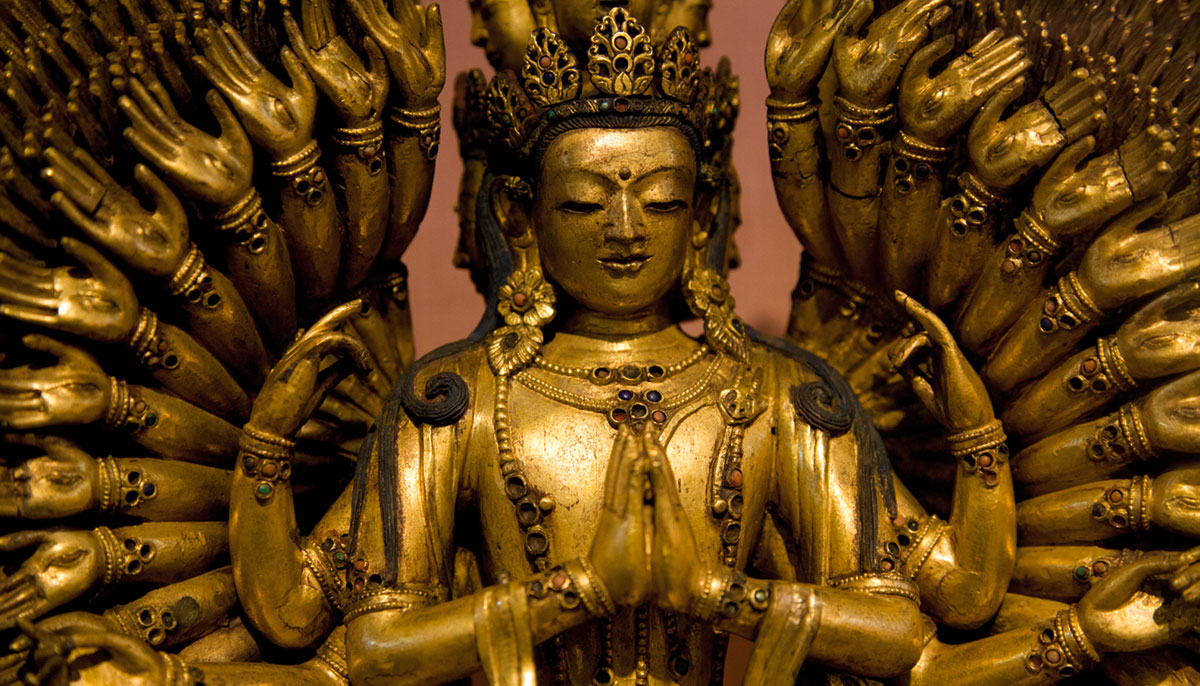When he was asked recently what will happen after he dies, the Dalai Lama shrugged and said he didn’t know. But he prayed he’d be reborn wherever there is the most suffering.
As I sat with this remarkable statement, it occurred to me that this is the bodhisattva way: to devote one’s life to the suffering of others, in all its forms, until it ends.
Yet, you may have noticed that this noble response—the compassion at the heart of Buddhist wisdom—can easily remain an elusive goal. For many of us, there is a distressing, almost instinctual gap between how we wish to respond to suffering, and our habituated response.
The key challenge is to recognize our common humanity, even — perhaps especially — when it is shrouded in stark differences.
Informed by Buddhism and psychotherapy, I’d like to look at two obstacles to caring for your own and others’ suffering—withdrawal and disappointment—and how you can overcome them.
For many of us, suffering causes us to withdraw. As we think through how to change this pattern, it might be helpful to consider that withdrawing from suffering is first and foremost an effort at protection. If, for instance, you’ve experienced acute suffering early in life, there will likely be protective parts of yourself primed to do anything necessary to ward off more pain. That’s what inner protectors do: they stand guard to fend off impending doom. More often than not, this means finding ways to duck and cover.
The trickiest and most paradoxical part of withdrawing from suffering is that it goes against our nature. We are wired to connect. This is an insight emphasized in Buddhist teachings, and also in neurobiology and psychotherapy. We begin this life seeking out our mother’s face, and until the last breath, whether we know it or not, we carry this longing for intimate connection.
So the challenge is to find new and more flexible ways to sustain relative safety in the midst of life, with all its unforeseen difficulties. Of course, perfect safety is not something we can count on. But we can make efforts to discern the various conditions, both internal and external, that contribute to or threaten our well-being. This is what we learn to do when practicing mindfulness. We notice more of our reality without judgment and learn about it with a sense of friendly curiosity so that we’re better able to discern the likely outcome of our responses. In the Buddhist tradition, we do this in the spirit of reducing future suffering and increasing well-being for ourselves and others.
The historical Buddha proposed a way to help the body and mind work collaboratively toward increased feelings of relative safety and ease. This method involves using the breath to help the mind feel more equipped to cope with reality. When you work skillfully with the breath, slowing it down and including gentle pauses between each inhalation and exhalation, the nervous system starts to feel more regulated, and the mind takes cues from the body that it’s safe enough to let your guard down.
Mindfulness of the breath is an invaluable way to unfreeze if you’re dealing with stressful conditions. It gives you more trust in your ability to stay connected to your experience—and the suffering in the world—even when it poses formidable challenges.
This brings us to a second obstacle to facing suffering that can wield enormous power, especially in times of crisis. When faced with acute suffering, it is tempting to feel consumed by the way others have disappointed us. If you’ve been maltreated, or know of others who have been, this response is understandable. But when disappointment fixates us, we can end up tacking back and forth between feeling inadequate ourselves and furious toward those doing harm.
Trauma therapists have some helpful insight into this dynamic. In any crisis, whether in a family or larger community, there is usually a combination of someone getting hurt, someone causing harm, and someone passively bearing witness. The combination of being harmed and not helped often results in a profound disappointment and mistrust of people and relationships.
Healing from disappointment takes time, and it requires the willingness to grieve what didn’t happen but should have. In psychotherapy, we work with the difficult and courageous process of consciously mourning personal and collective experiences of suffering as the path to feeling our tender heart that’s in need of care and compassion.
In Buddhist meditation, feelings of disappointment and anger are explored and challenged through the practice of loving-kindness meditation. Over time, this method can reinforce a visceral understanding that we all wish for happiness and freedom from suffering.
We do this first by generating love and compassion for those we can easily care about, then extending these tender feelings to the vast majority of people in this world whom we don’t know, and, slowly, even to those with whom we’ve had difficulty or conflict. The key challenge is to recognize our common humanity, even—perhaps especially—when it is shrouded in stark differences.
You might notice a sense of mental suppleness and ease as you work with this practice, even toward people who normally cause you distress. Meditating on loving-kindness can help you cultivate equanimity and feel less alone, less disappointed, and ready for restored trust.
These are complex times we’re living through. They include many striking examples of the human tendency to look away from suffering. This is a time to practice our spiritual path with determination, to open ourselves fully to the suffering of ourselves and others, and to generate a well of compassion we can readily tap into. This noble effort will help us and future generations live with the peace of mind and well-being we all deserve.

